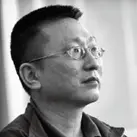China Seminar | 8 December 1988
Contemporary Writers and Writing in China
The seminar will hear from an eminent author, Bai Hua, on themes related to contemporary writers and writings in China. The following sketch should point to an interesting session. Bai Hua’s life and career trace in microcosm the vicissitudes and triumphs of the artist in contemporary China. His father was buried alive by the Japanese army when Bai Hua was a boy. As a schoolboy he hid from the Japanese and worked for a living. He started writing at the age of 16, and condemned for his writing by the government in 1957 at the start of the Anti-Right Movement. Expelled from the Amy and the party, he was not allowed to write or publish and was denied human rights for seven years during the Cultural Revolution. He resumed his career in 1976 when the Cultural Revolution ended with Mao’s death. His works reflect his sharply critical stance; his screenplay, Bitter Love, attracted worldwide attention though it came under fire across China. Some of his works have been translated into English, French, Russian, Ukranian, Japanese, and Korean.
He has more than 30 publications, including: The Peacock, an epic poem (1957); Bitter Love, a screen play (1979); The Death of the Veteran Fisherman, a novel (1982); King Wu’s Golden Lance and King Yeh’s Sword, a play (1983) banned in Beijing for political reasons; When I Love and Am Loved, a poetry collection (1987); There is a Female Country Yonder, a novel (1988).
